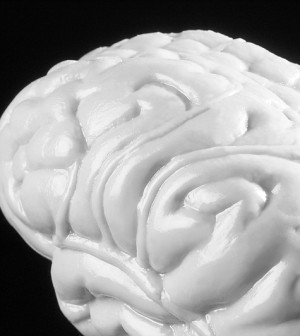- Could Your Grocery Store Meat Be Causing Recurring UTIs?
- Are You Making This Expensive Thermostat Error This Winter?
- Recognizing the Signs of Hypothyroidism
- 10 Strategies to Overcome Insomnia
- Could Artificial Sweeteners Be Aging the Brain Faster?
- Techniques for Soothing Your Nervous System
- Does the Water in Your House Smell Funny? Here’s Why
- Can a Daily Dose of Apple Cider Vinegar Actually Aid Weight Loss?
- 6 Health Beverages That Can Actually Spike Your Blood Sugar
- Treatment Options for Social Anxiety Disorder
Extremely Small Preemies May Face Bullying, Mental Health Risks

Extremely low birth weight infants face higher odds of being bullied in childhood. And, this raises the risk for depression and other mental health problems when they are adults, a new study suggests.
Researchers followed Canadians who were 2.2 pounds or less at birth until they were 36 years old. The investigators compared these study participants to people who had normal birth weights of 5.5 pounds or more.
The tiniest babies were more likely to be bullied in childhood, perhaps due to poorer physical abilities, higher levels of anxiety and learning difficulties, according to the researchers at McMaster University in Hamilton, Ontario.
By their 20s, adults who had been the smallest infants and were bullied during childhood had nearly twice the risk of mental health disorders — such as depression, anxiety or attention-deficit/hyperactivity disorder (ADHD). The risk was even higher among those who had suffered the most bullying, the study found.
By their 30s, adults who had been the smallest infants had a nearly threefold higher risk of anxiety disorders — such as obsessive-compulsive disorder, social phobia and panic disorder. Again, the risk was even higher for those bullied most often, according to the study.
The findings were published Feb. 17 in the journal Pediatrics.
“Being bullied has a significant and lasting impact for those preemies, even into their 30s,” lead author Kimberly Day, a postdoctoral fellow at McMaster’s Centre for Child Studies, said in a university news release.
“This has important implications for parents, teachers and clinicians, who need to be aware of the long-term effects of peer victimization on mental health. They need to watch out for bullying and intervene when possible,” Day added.
The study illustrates the profound effects of bullying on the mental health of preterm survivors, study senior author Ryan Van Lieshout, an assistant professor of psychiatry and behavioral neurosciences, said in the news release.
“Their risk for anxiety disorders is especially high, particularly among those who are exposed to bullying on a regular basis,” he said.
More information
The U.S. National Institute of Child Health and Human Development has more about bullying.
Source: HealthDay
Copyright © 2026 HealthDay. All rights reserved.










